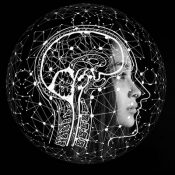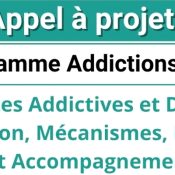Mado Gautier (doctorante, LEP, Université Catholique de Louvain), Jessica Mange (MC HDR, LPCN, Université de Caen) Xavier De Longueville (Dr, Grand Hôpital de Charleroi) et Pierre Maurage (PR, Université Catholique de Louvain) ont publié un nouvel article dans le prochain numéro de la revue Drug and Alcohol Dependence.
Gautier, M., Mange, J., De Longueville, X. & Maurage, P. (2024, in press). Is severe alcohol use disorder really associated with increased utilitarian moral judgment? Exploration using the CNI model. Drug and Alcohol Dependence.
Abstract
Objectives: The psychology of moral decision-making classically contrasts utilitarianism (i.e., based on consequences) and deontology (i.e., based on moral norms). Previous studies capitalizing on this dichotomy have suggested the presence of a utilitarian bias among patients with severe alcohol use disorder (SAUD). We aimed to further disentangle the processes involved in such bias through a more validated approach, the CNI model of moral decision-making. This model allows to go further than the traditional approach by distinguishing sensitivity to consequences (C), to moral norms (N), and general preference for inaction over action (I) in response to moral dilemmas. Methods: Thirty-four recently detoxified patients with SAUD and 34 matched control participants completed a battery of 48 dilemmas derived from the CNI model, as well as social cognition tasks. Results: In contrast with the utilitarian bias suggested in previous studies based on the traditional approach, patients with SAUD did not show an increased sensitivity to consequences in comparison with control participants. However, they showed a reduced sensitivity to moral norms, as well as a greater action tendency. These biases were not related to social cognition deficits. Conclusions: Patients with SAUD are not more utilitarian than healthy controls, this previously reported bias being artificially generated by the methodological limits of the traditional approach. Instead, they present a reduced sensitivity to moral norms and an action bias, which might impact their interpersonal relations and contribute to the social isolation frequently reported in this population, thus identifying moral decision-making as a new therapeutic lever in SAUD.
Il est consultable via ce lien : https://www.researchgate.net/publication/383511934_Is_severe_alcohol_use_disorder_really_associated_with_increased_utilitarian_moral_judgment_Exploration_using_the_CNI_model
Celui-ci a été publié dans la revue Drug and Alcohol Dependence (IF: 3,9) une revue internationale consacrée à la publication de recherches, de revues scientifiques, de commentaires et d’analyses dans le domaine de la consommation et de la dépendance aux drogues, à l’alcool et au tabac.
Jessica Mange est enseignante-chercheuse au LPCN, elle s’intéresse, notamment, aux déterminants et à la prévention de la dépendance et à la prévention de la stigmatisation et de la déshumanisation. Elle coordonne le programme ADDICTION au LPCN.







